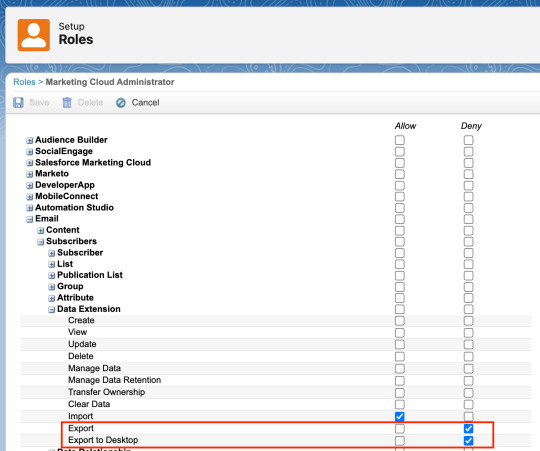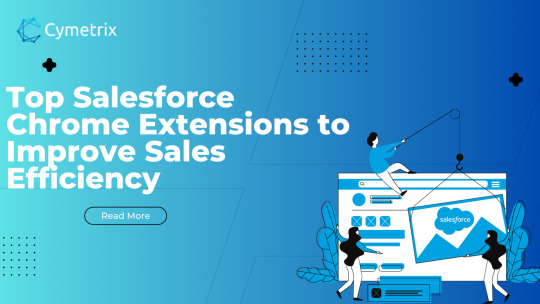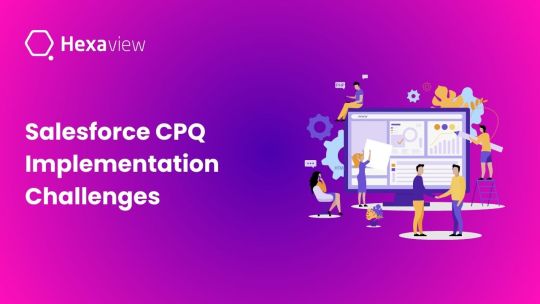#salesforce extensions
Explore tagged Tumblr posts
Text
As more and more businesses start leveraging Salesforce CRM, the ecosystem of apps and extensions also grows.
Many Salesforce professionals have started using browser extensions to optimize the overall development process.
Our recent blog discusses the top 10 Salesforce extensions you can add to your browser to improve your productivity. Read now!
0 notes
Text
Restrict Exporting Data From Salesforce Marketing Cloud
Salesforce Marketing Cloud (SFMC) is a powerful platform for managing campaigns, and it involves accessing sensitive customer data and a lot of transaction data. Securing this data from unauthorized exports is critical for compliance, privacy, and risk mitigation. Uncontrolled data extraction can lead to data breaches, GDPR/CCPA violations, and insider threats. In this post, we’ll explore…

View On WordPress
#data extension remove export button#disable data export#disable data export from marketing cloud#disable data export from sfmc#Marketing Cloud#restrict data export#Salesforce blog#salesforce disable data export#sfdc fanboy#sfdcFanBoy
0 notes
Text
Staying ahead in sales in the dynamic world of business requires creativity, accuracy, and agility. In 2025, Salesforce, the top CRM platform in the market, will revolutionize sales tactics with its cutting-edge tools and technologies. Through automation and AI-powered insights, Salesforce enables businesses to better understand client needs, optimize workflows, and attain previously unheard-of levels of productivity. Salesforce's cutting-edge solutions give companies the competitive advantage they need to prosper in the fast-paced market of today as they embrace digital transformation.
#salesforce#saleforce extensions#salesforce einstein#salesforce training#salesforce internship#salesforce certificates#e3l#e3l.co
0 notes
Text
Top 15 Salesforce Chrome Extensions for 2024
Several Salesforce Chrome extensions are specifically designed to streamline your workflow and enhance your performance. Whether it is about automating your tasks or providing helpful insights in one click, these extensions can change your perception about using Salesforce.
So, suppose you are a true Salesforce enthusiast or working on the profile of an admin or developer. In that case, you must check out these Top 15 Salesforce Chrome Extensions for 2024 to make your working life easier.
0 notes
Text

Discover top Salesforce extensions empowering developers in 2023 for streamlined coding, deployment, and improved functionality.
#best salesforce chrome extensions#chrome extensions salesforce inspector#best chrome extensions for salesforce#best salesforce extensions#extensions salesforce#top salesforce chrome extensions#best salesforce extensions for chrome#chrome extensions for salesforce#extensions salesforce inspector
0 notes
Text
TOP SALESFORCE CHROME EXTENSIONS TO IMPROVE SALES EFFICIENCY

Salesforce Chrome extensions are powerful tools that can help streamline tasks, improve productivity, and enable the sales team to work more efficiently. Here are some of the best salesforce chrome extensions: 1. Salesforce Lightning Inspector 2. LinkedIn Sales Navigator for Salesforce 3. Salesforce API Fieldnames 4. Salesforce Navigator 5. Cirrus Insight These are some of the best Salesforce Chrome extensions you can use to enhance the efficiency and productivity of your sales team. If you want to know more about each Chrome extension in detail, you can learn more about Top Salesforce Chrome extensions.
#salesforce chrome extensions#top salesforce chrome extensions#chrome extensions#sales#sales efficiency
0 notes
Text
Reply.io is a sales engagement platform designed to help sales teams automate and manage their outreach efforts through multiple communication channels. It aims to streamline the process of engaging with prospects and customers, thereby increasing productivity and efficiency.
Below is a detailed review of its features and functionalities:
Key Features
Multi-Channel Outreach:
Email Campaigns: Automate and personalize email sequences to reach prospects effectively.
Phone Calls: Integrates with VoIP services to facilitate direct calling from the platform, including features like call recording and logging.
Social Media: Allows outreach via LinkedIn, including automated message sequences.
SMS and WhatsApp: Supports text-based outreach through SMS and WhatsApp for more direct communication channels.
Automation and Sequencing:
Automated Workflows: Create automated workflows that sequence multiple touch points across different channels.
Conditional Logic: Use conditional steps to branch sequences based on recipient behavior, such as email opens or replies.
Task Automation: Automate repetitive tasks such as follow-ups, reminders, and updating CRM records. Personalization and AI:
Email Personalization: Use dynamic fields to personalize email content, increasing engagement rates.
AI-Powered Suggestions: AI tools provide suggestions for improving email content and outreach strategies.
Personalized Videos: Integrates with video messaging tools to include personalized video content in emails.
Integration and API:
CRM Integration: Seamlessly integrates with major CRM systems like Salesforce, HubSpot, and Pipedrive, ensuring data synchronization.
API Access: Provides API access for custom integrations and automations, allowing for greater flexibility.
Third-Party Tools: Connects with various other tools such as Zapier, Slack, and Google Apps to enhance functionality.
Analytics and Reporting:
Campaign Analytics: Detailed analytics on email open rates, reply rates, click-through rates, and more.
A/B Testing: Test different versions of emails to determine which performs better.
Team Performance: Track team performance metrics to identify areas for improvement and optimize outreach efforts.
Contact Management:
Lead Management: Centralized database for managing contacts and leads, with segmentation and filtering options.
Enrichment: Automatic data enrichment to enhance lead profiles with relevant information.
Prospect Importing: Easily import contacts from CSV files or directly from integrated CRM systems.
Pros Comprehensive Multi-Channel Outreach: Supports a variety of communication channels, providing a holistic approach to sales engagement.
Advanced Automation and Sequencing: Powerful automation features help streamline workflows and increase efficiency.
Deep Personalization: Tools for email and video personalization improve engagement and response rates.
Robust Integration Capabilities: Seamless integration with CRM systems and other third-party tools enhances data synchronization and workflow automation.
Detailed Analytics: Comprehensive reporting and analytics provide insights into campaign performance and team productivity.
Cons Complexity: The extensive features and customization options can be overwhelming for new users, requiring a learning curve to fully utilize the platform.
Cost: Pricing can be relatively high, especially for smaller businesses or startups with limited budgets.
Limited Free Tier: The free tier offers limited functionality, which may not be sufficient for more extensive outreach needs.
Reply.io is a powerful and versatile sales engagement platform that offers a comprehensive suite of tools for multi-channel outreach, automation, and personalization. Its robust integration capabilities and detailed analytics make it an excellent choice for sales teams looking to optimize their engagement strategies and improve productivity. However, the complexity and cost may pose challenges for smaller organizations or those new to such platforms. Overall, Reply.io provides significant value for businesses seeking to enhance their sales outreach and engagement efforts.
4 notes
·
View notes
Text
How Salesforce Developers Shape the Future of Project Management Success?
The ever-changing field of project management has made technology developments crucial to the achievement of desired results. With the help of knowledgeable developers and consultants, Salesforce is a platform that can truly alter businesses, even in the face of an extensive number of competing offerings.
A Salesforce consultant will have a huge influence on how project managers succeed in the future. They will use Salesforce's features to improve teamwork, accelerate efficiency, and streamline procedures.
In this blog, we'll reveal the critical role that Salesforce developers play in influencing the success of project management. We'll explore their experience streamlining processes, streamlining work, and customizing solutions to drive productivity and cooperation in the fast-paced project environments of today.
Customized Solutions Crafting
Explore the ways in which developers modify modules, improve user experience, and guarantee scalability to ensure future-proofing of Salesforce systems.
Adapting Salesforce Modules:
The modules in Salesforce's suite are easily navigated by developers, who may easily customize features to fit project workflows. Whether creating complex workflows, setting unique items, or connecting third-party apps, developers take use of Salesforce's adaptability to create solutions that align with project goals.
User Experience Enhancement:
Developers may simply explore the modules in Salesforce's suite and modify functionalities to suit project procedures. Whether establishing custom items, integrating third-party apps, or building intricate workflows, developers leverage Salesforce's flexibility to build solutions that support project objectives
Scalability and Future-Proofing:
Future-focused, scalable, and flexible solutions are designed by developers. They future-proof project management systems by foreseeing possible expansion and changing needs, providing the groundwork for long-term success and adaptability.

Seamless Collaboration Integration
Examine how seamless collaboration integration may strengthen teamwork, bridge systems, and enable data-driven decision-making.
System Integration:
By utilizing middleware and APIs, developers can plan the smooth connection of Salesforce with other vital programs and systems. Integration facilitates data flow and guarantees a cohesive environment through connections with project management software, communication tools, and enterprise resource planning (ERP) systems.
Collaborative Workspace:
Within Salesforce, developers create collaborative workspaces that enable teams to share insights, interact in real time, and centralize communication. Transparent communication and knowledge sharing are facilitated by features like Chatter, Communities, and interfaces with Slack and other collaborative applications.
Data-Driven Decision Synthesis:
Developers facilitate the extraction of meaningful insights from heterogeneous data sources for project stakeholders by providing integrated analytics and reporting functionalities. Through the synthesis of data in Salesforce, ranging from project status to customer feedback, stakeholders can efficiently minimize risks, make well-informed decisions, and drive strategic objectives.
Automation for Enhanced Efficiency
Investigating data synthesis, collaborative workspaces, and efficient procedures for well-informed decision-making.
Workflow Automation:
Developers use Salesforce's automation features, such Flow and Process Builder, to standardize procedures and automate time-consuming tasks. They manage workflows that reduce human error, speed up task completion, and increase overall efficiency by specifying triggers, actions, and approval processes.
AI-Powered Insights:
By using artificial intelligence (AI) tools such as Salesforce Einstein, developers are able to introduce intelligence into project management procedures. AI-driven insights enable project teams to make data-driven decisions quickly, from sentiment analysis that measures stakeholder satisfaction to predictive analytics that predicts project timeframes.

Mobile Optimization:
Salesforce is optimized for mobile devices by developers who understand how important mobility is in today's dynamic work environment. They ensure that project stakeholders can access vital information and complete activities while on the go by utilizing native app development and responsive design, which promotes responsiveness and productivity.
Conclusion
In conclusion, Salesforce developers are the engine of innovation, using the platform's potential to entirely rethink the project management sector in conjunction with Salesforce consulting experience. By means of customization, automation, and integration, they facilitate enterprises in achieving unparalleled levels of efficiency, collaboration, and success. The combined experience of consultants and Salesforce developers will be essential in steering project management's future course toward even higher success and quality as it develops.
FAQs About Salesforce Developers and Project Management
How do Salesforce developers contribute to project management success?
Salesforce developers streamline project workflows, automate tasks, and customize solutions, enhancing efficiency and collaboration for project teams.
What skills do Salesforce developers bring to project management?
Salesforce developers possess expertise in coding, data management, and platform customization, enabling them to tailor solutions that align with project goals and requirements.
Why is Salesforce considered crucial for future project management?
Salesforce's robust platform offers scalable solutions, real-time insights, and seamless integration capabilities, empowering project managers to drive innovation and achieve project success efficient
#remote work#technology#hire salesforce developer#hire salesforce consultant#project manager#tech jobs#Future of businesses
4 notes
·
View notes
Text
Best SAP Certification & Placement Training Institute Nagpur | SAPALOGY

Celebrating our first year of excellence, we proudly stand as the foremost SAP Certification and Placement Training Institute in Nagpur. Our commitment to delivering unparalleled training and ensuring successful career placements has solidified our reputation in the industry.
At our institute, we prioritize quality education, offering cutting-edge SAP courses designed to align with current industry standards. Our seasoned instructors, with extensive practical experience, provide a hands-on learning experience to equip students with the skills demanded by the job market.
What distinguishes us is our holistic approach to education and career advancement. Our dedicated placement assistance programs, coupled with strong industry ties, empower our graduates to secure coveted positions in leading organizations. Our one-year journey is marked by the success stories of individuals who have thrived in their SAP careers after training with us.
As we mark this milestone, we renew our commitment to nurturing SAP professionals. Join our institute, where expertise meets opportunity. Obtain your SAP certification, refine your skills, and launch a thriving career with the premier SAP Certification and Placement Training Institute in Nagpur.
To know more-
2 notes
·
View notes
Text
Salesforce Implementation Partners in India: Unlocking CRM Excellence

Salesforce implementation partners in India are certified consulting firms that specialize in guiding businesses through the successful adoption and deployment of Salesforce CRM solutions. These partners possess extensive expertise in Salesforce products and best practices, offering 7a services, including planning, customization, integration, data migration, and post-implementation support.
They work closely with clients to understand their unique requirements, design tailored solutions, and ensure smooth and efficient implementations. With in-depth knowledge of local business landscapes and industries, Salesforce implementation partners in India play a pivotal role in driving CRM excellence and empowering organizations to harness the full potential of Salesforce to achieve their sales, marketing, and customer service goals.
Importance of choosing the right implementation partner
Choosing the right Salesforce implementation partner is paramount for a successful CRM deployment. Here are key reasons why this decision holds significance:
Expertise and Experience:
The right partner brings extensive knowledge and experience in Salesforce implementations, ensuring a smooth and efficient deployment. They understand the intricacies of Salesforce products and can tailor solutions to meet specific business needs.
Customized Solutions:
A reputable implementation partner takes the time to comprehend the organization's unique requirements and designs customized solutions that align with business goals, maximizing the value of the CRM platform.
Cost and Time Efficiency:
A skilled partner can expedite the implementation process, reducing downtime and minimizing potential disruptions to business operations. This efficiency translates to cost savings and quicker ROI.
Technical Proficiency:
Implementing Salesforce requires technical expertise, and the right partner possesses certified professionals who can handle complex configurations, integrations, and data migrations with proficiency.
Ongoing Support:
Beyond implementation, the right partner offers post-deployment support, training, and continuous optimization to ensure the CRM system evolves with changing business needs and industry trends.
Risk Mitigation:
An experienced partner can anticipate and address potential challenges during implementation, mitigating risks and ensuring a successful outcome for the project.
Industry Insights:
A knowledgeable partner with experience in the relevant industry can provide valuable insights and best practices, tailoring the CRM solution to industry-specific requirements.
Seamless Integration:
For businesses already using other systems or tools, the right partner can seamlessly integrate Salesforce with existing applications, creating a unified ecosystem and enhancing overall efficiency.
9. Change Management: The right partner assists in change management, helping employees adapt to the new CRM system and fostering user adoption, which is crucial for the success of any implementation.
10. Long-Term Partnership: Selecting the right partner establishes a long-term collaboration, ensuring continuous support, upgrades, and expertise throughout the CRM journey.
The Role of Salesforce Implementation Partners
A. Why Work with a Salesforce Implementation Partner?
1. Specialized Expertise: Salesforce implementation partners have specialized knowledge and expertise in Salesforce products, ensuring a smooth and effective deployment that aligns with business objectives.
2. Tailored Solutions: Partnering with experts allows organizations to receive customized solutions that cater to their specific needs, maximizing the benefits of the Salesforce CRM platform.
3. Faster Time-to-Value: With experience and best practices, implementation partners can expedite deployment, helping businesses achieve faster ROI and time-to-value.
4. Risk Mitigation: Implementation partners identify and address potential challenges, reducing the risk of errors and ensuring successful implementation with minimal disruptions.
5. Change Management Support: Partners assist in change management and user adoption, effectively guiding employees through the transition to the new CRM system.
B. The Value of Expertise and Experience in Successful Implementations:
1. Technical Proficiency: Implementation partners possess certified professionals with technical prowess, enabling seamless configurations, integrations, and data migrations.
2. Industry Knowledge: Experience in diverse industries equips partners to understand unique challenges and requirements, tailoring Salesforce solutions for specific sectors.
3. Best Practices: Having executed numerous implementations, partners apply proven methodologies and best practices, optimizing the CRM setup for maximum efficiency.
4. Scalability: Experienced partners design solutions that scale with business growth, accommodating future needs and organizational changes.
C. Services Provided by Salesforce Implementation Partners:
1. Requirements Analysis: Partners assess business needs and processes to determine the scope and objectives of the Salesforce implementation.
2. Customization and Configuration: Implementers tailor Salesforce to match specific business workflows and requirements, ensuring a seamless fit with existing processes.
3. Data Migration: Partners handle the secure and accurate data transfer from legacy systems to Salesforce, preserving data integrity.
4. Integration: Implementers integrate Salesforce with other applications and systems to create a unified ecosystem for data flow and efficient operations.
5. Training and Support: Partners provide comprehensive training and ongoing support to enable users to leverage Salesforce to its full potential.
6. Post-Implementation Optimization: After deployment, partners continuously optimize the system, improving based on feedback and changing business needs.
Salesforce Marketing Cloud Implementation
Salesforce Marketing Cloud Implementation is integrating and deploying Salesforce's robust marketing automation platform to optimize marketing strategies and enhance customer engagement. This implementation unlocks many capabilities, including email marketing, personalized content creation, social media management, and customer journey automation.
Businesses define their marketing objectives and workflows during the implementation, ensuring the platform aligns with their specific needs. Key steps include:
Configuring customer data.
Creating personalized customer segments.
Designing engaging email templates.
Setting up automated campaigns.
Integrating with other marketing tools and systems.
Salesforce Marketing Cloud empowers organizations to deliver targeted and relevant content to the right audience, at the right time, through the right channels. The implementation enables marketers to optimize campaigns, analyze performance metrics, and gain valuable insights into customer behavior, ultimately fostering stronger customer relationships and driving higher marketing ROI.
Successful Salesforce Marketing Cloud Implementation requires collaboration with experienced implementation partners who leverage their expertise to design tailored solutions, providing businesses with a competitive edge in today's dynamic marketing landscape.
Salesforce Sales Cloud Implementation
Salesforce Sales Cloud Implementation refers to deploying Salesforce's powerful customer relationship management (CRM) platform to streamline sales processes, enhance productivity, and optimize customer interactions. This implementation involves configuring the Sales Cloud to match the business's unique sales workflows and requirements.
Key steps in the implementation process include:
Setting up lead and opportunity management.
Defining sales processes.
Customizing sales stages.
Automating tasks and workflows.
Integrating with other business systems.
Data migration and training for sales teams are also essential components to ensure a smooth transition to the new CRM system.
Salesforce Sales Cloud empowers sales teams with valuable insights, real-time data, and automation tools, enabling them to effectively identify leads, track opportunities, and nurture customer relationships. The implementation drives sales efficiency, improves forecasting accuracy, and promotes collaboration among sales representatives.
To achieve a successful Salesforce Sales Cloud Implementation, businesses often engage with experienced implementation partners with the expertise to design a tailored CRM solution that aligns with the organization's specific sales goals, leading to increased sales effectiveness and revenue growth.
Salesforce Service Cloud Implementation
Salesforce Service Cloud Implementation involves the seamless integration and deployment of Salesforce's comprehensive customer service platform to enhance customer support operations and deliver exceptional service experiences. During the implementation process, businesses configure Service Cloud to align with their unique customer service workflows and requirements.
Key steps include:
Setting up case management.
Creating service queues.
Automating service processes with workflows.
Integrating with other systems to ensure a unified view of customer interactions.
Data migration and training for customer service teams are vital aspects of a successful implementation.
Salesforce Service Cloud empowers organizations to provide personalized, efficient, and timely customer support across various channels like email, phone, chat, and social media. The platform enables case resolution tracking, knowledge management, and self-service capabilities, improving customer satisfaction and loyalty.
Experienced Salesforce Service Cloud implementation partners can guide businesses through the process, designing a tailored solution that maximizes the platform's potential for delivering world-class customer service and driving enhanced customer engagement and loyalty.
Post-Implementation Support and Optimization
A. The Importance of Ongoing Support and Maintenance:
1. Ensuring System Stability: Ongoing support and maintenance ensure the Salesforce system remains stable, reducing the risk of downtime or performance issues.
2. Timely Issue Resolution: With continuous support, any technical glitches or user queries can be promptly addressed, minimizing disruptions to business operations.
3. User Training and Adoption: Post-implementation support includes training and guidance for users to maximize their proficiency and adoption of Salesforce features.
4. Data Integrity: Regular maintenance helps maintain data integrity, ensuring accurate and reliable information for informed decision-making.
B. Strategies for Optimizing Salesforce for Continuous Improvement:
1. Regular Performance Reviews: Conduct regular reviews to assess the system's performance, identify areas for improvement, and optimize configurations.
2. Feedback and User Input: Gather user feedback to understand pain points and enhancement opportunities, ensuring the system aligns with evolving business needs.
3. Customization Enhancements: Continuously customize Salesforce to accommodate new business processes and evolving requirements.
4. Data Analysis and Insights: Leverage data analytics to extract insights on sales, marketing, and service performance, informing strategic decision-making.
C. How to Leverage Salesforce Updates and New Features to Stay Ahead:
1. Stay Informed: Keep track of Salesforce release notes and updates to be aware of new features and improvements.
2. Training and Enablement: Train users on new features to fully leverage the platform's capabilities.
3. Strategic Implementation: Assess how new features align with business goals and implement them strategically for maximum impact.
4. Monitor Industry Trends: Stay abreast of industry trends and best practices to effectively leverage Salesforce's evolving capabilities.
Conclusion
Salesforce implementation is a transformative journey that requires careful planning, expert guidance, and continuous support. Choosing the right implementation partner ensures a seamless deployment, tailored solutions, and faster time-to-value. Expertise and experience are vital in successful implementations, optimizing Salesforce to meet specific business needs.
Salesforce Marketing Cloud, Sales Cloud, and Service Cloud implementations empower organizations to enhance marketing strategies, streamline sales processes, and deliver exceptional customer service. Post-implementation support and optimization are crucial for system stability, user adoption, and continuous improvement.
Staying informed about Salesforce updates and features enables businesses to stay ahead, driving innovation and achieving CRM excellence. With the right strategies and ongoing support, Salesforce implementations pave the way for enhanced productivity, improved customer engagement, and sustained success in a competitive business landscape.
3 notes
·
View notes
Text
Top Challenges Faced While Implementing Salesforce CPQ

Salesforce CPQ is one of the widely used Salesforce products used by salesperson to create sales quotes easily and with best efficiency.
However, Implementing Salesforce CPQ (Configure, Price, Quote) is not a simple task and requires domain expertise. Businesses often face several challenges while implementing it. Businesses must always consult with Salesforce CPQ Consulting services providers which can ensure them hassle free and quick implementation. So, In this blog, we are going to discuss about the challenges faced during Salesforce CPQ Implementation:
Data Integration: Salesforce CPQ typically needs to integrate with various data sources, such as CRM, ERP, and pricing databases. Ensuring smooth data integration and data quality can be challenging, especially when dealing with legacy systems.
Customization Complexity: Salesforce CPQ is a highly customizable tool, and organizations often need to tailor it to their specific needs. However, extensive customization can lead to complexity and longer implementation timelines. Balancing customization with out-of-the-box functionality is essential.
Pricing Strategy: Determining the right pricing strategy and translating it into Salesforce CPQ rules and configurations can be complex. You need to consider factors like pricing tiers, discounts, promotions, and bundling while ensuring profitability.
Product Complexity: If your organization offers a wide range of complex products with multiple configuration options, managing and configuring these in Salesforce CPQ can be challenging. It's crucial to have a well-structured product catalog and configuration rules.
Unclear Objectives and Business Goals Alignment: It has been found several times that businesses make the decision of implementing technologies in a rush just looking at the emerging technologies. So, they are not able to properly align their business objectives with the technologies and hence proper tool utilization is not done.
Performance Optimization: As the system grows and more users access it, you might encounter performance issues. Regular performance monitoring and optimization are necessary to ensure a smooth user experience.
Scalability & Flexibility: As the business evolves with the time with product offerings and customer base growing and so the Salesforce CPQ solution should be. A solution that cannot be evolved with the time, literally becomes a liability. So, businesses need to ensure that their Salesforce CPQ implementation can scale with their business requirement.
Regulatory Compliance: Depending on your industry, you may need to adhere to specific regulatory requirements related to pricing, quoting, and contracts. Ensuring that Salesforce CPQ meets these compliance standards can be a challenge.
Testing and Quality Assurance: Thoroughly testing the Salesforce CPQ implementation is crucial to identify and resolve any issues before they impact sales operations. Developing comprehensive test plans and involving end-users in testing are vital.
End User Training: It must be ensured that the end users should receive the necessary training required to handle the tool so that they can work efficiently. In many of the cases, it has been found the end users does not enough training and found technical complexities in using the tool.
Ongoing Maintenance and Support: After the initial implementation, you'll need a plan for ongoing maintenance and support. This includes addressing user issues, updating configurations to reflect changes in pricing or products, and applying software updates.
Cost Management: Implementing Salesforce CPQ can be expensive, considering licensing costs, customization, and integration expenses. Managing the budget and ensuring that the project stays within scope can be a challenge.
To address these challenges, organizations should involve key stakeholders, engage with experienced Salesforce CPQ consultants or partners like Hexaview Technologies, and plan the implementation carefully. It's also essential to have a clear roadmap and set realistic expectations for the project timeline and outcomes. Regular communication and feedback loops with users and stakeholders are critical to ensure the success of Salesforce CPQ implementation. Hexaview Technologies is a renowned Salesforce services providers that offers a gamut of Salesforce related services like Salesforce consulting, Salesforce Development Services, Salesforce Data Migration, Migration to Salesforce CRM, Salesforce CPQ consulting etc.
#salesforce cpq#Salesforce cpq consulting#Salesforce cpq consultants#cpq consultants#cpq#cpq software#salesforce#crm
3 notes
·
View notes
Text
Unlocking Efficiency: Mastering Microsoft Power Automate for Business Success
Transform Your Daily Tasks into Seamless Workflows with Power Automate
In today’s fast-paced digital landscape, efficiency and productivity are more crucial than ever. Businesses and individuals alike seek ways to automate repetitive tasks, reduce errors, and free up valuable time for more strategic activities. Microsoft Power Automate emerges as a powerful tool to help you achieve these goals, enabling you to create automated workflows that connect your apps and services effortlessly.
Imagine a world where your routine tasks—such as data entry, email notifications, and file management—are handled automatically. Power Automate makes this possible with its intuitive, user-friendly interface that allows you to design workflows without any coding knowledge. Whether you're a small business owner or part of a large enterprise, automating processes can significantly boost your productivity and operational efficiency.
One of the standout features of Power Automate is its ability to connect with over 300 data sources and services, including Microsoft 365, Dynamics 365, SharePoint, and even third-party applications like Twitter, Salesforce, and Dropbox. This extensive connectivity means you can create comprehensive automation solutions tailored to your specific needs. For example, automatically saving email attachments to OneDrive, posting social media updates, or synchronizing data between different platforms can all be streamlined using Power Automate.
Getting started is simple. You can explore pre-built templates that serve as starting points for common workflows, or you can build custom flows from scratch. For instance, if you receive a customer inquiry via email, Power Automate can automatically categorize, prioritize, and assign it to the appropriate team member, ensuring timely responses and improved customer satisfaction.
Moreover, Power Automate supports Robotic Process Automation (RPA), allowing you to automate even the most mundane manual tasks that involve legacy systems or complex processes. RPA bots can mimic human actions on your behalf, such as data entry in legacy applications, freeing up your team to focus on more strategic initiatives.
Security and compliance are also at the forefront of Power Automate’s capabilities. Microsoft ensures that your workflows adhere to industry standards, protecting sensitive data while enabling seamless automation across your organization.
To maximize the benefits of Power Automate, consider integrating it into your overall digital transformation strategy. By automating routine tasks, your team can redirect their efforts towards innovation, customer engagement, and growth. Learning how to leverage this tool effectively will set your business apart in a competitive landscape.
If you're ready to take your productivity to the next level, buy microsoft power automate license today and start transforming your workflows. Embrace automation and unlock a future where efficiency and creativity go hand in hand.
0 notes
Text
Next-Gen B2B Lead Generation Software Platforms to Boost ROI in 2025
In 2025, precision is everything in B2B marketing. With buyers conducting extensive research before engaging with vendors, companies can no longer afford to rely on outdated or generic tools. This is why the adoption of next-gen Lead Generation Software has surged across industries. These tools are now smarter, faster, and more predictive than ever, making them central to any modern sales and marketing strategy.

Why B2B Teams Prioritize Lead Generation Software
Today’s Lead Generation Software offers more than just contact databases or form builders. It acts as a full-scale prospecting engine, equipped with:
Advanced intent analytics to identify high-interest accounts
AI-powered outreach automation that mimics human engagement
Behavioral insights to guide nurturing workflows
CRM and MAP integrations for seamless data movement
Let’s explore the top Lead Generation Software platforms driving results for B2B companies in 2025.
1. LeadIQ
LeadIQ helps B2B sales teams prospect faster and smarter. As a cloud-based Lead Generation Software, it focuses on streamlining contact capture, enrichment, and syncing to CRM platforms.
Key Features:
Real-time prospecting from LinkedIn
AI-generated email personalization
Team collaboration and task tracking
Syncs with Salesforce, Outreach, and Salesloft
2. Demandbase
Demandbase combines account intelligence with intent data, making it a powerful Lead Generation Software for enterprise-level ABM strategies. In 2025, its AI engine predicts purchase readiness with impressive accuracy.
Key Features:
Account-based targeting and engagement
Real-time intent signals and analytics
Predictive scoring and segmentation
Integration with MAP and CRM systems
3. AeroLeads
AeroLeads is ideal for SMBs and B2B startups looking for affordable yet effective Lead Generation Software. It enables users to find business emails and phone numbers from LinkedIn and other platforms in real-time.
Key Features:
Chrome extension for live data scraping
Verified contact details with export options
Data enrichment and lead tracking
Integrates with Zapier, Salesforce, and Pipedrive
4. Prospect.io
Prospect.io provides automation-first Lead Generation Software for modern sales teams. It excels in outbound workflows that blend email and calls with analytics.
Key Features:
Multi-step email and task sequences
Lead activity tracking
Lead scoring and pipeline metrics
Gmail and CRM compatibility
5. LeadSquared
LeadSquared has become a go-to Lead Generation Software in sectors like edtech, healthcare, and finance. It combines lead acquisition, nurturing, and sales automation in a single platform.
Key Features:
Landing pages and lead capture forms
Workflow automation based on behavior
Lead distribution and scoring
Built-in calling and email tools
6. CallPage
CallPage converts website traffic into inbound calls, making it a unique Lead Generation Software tool. In 2025, businesses use it to instantly connect leads to sales reps through intelligent callback pop-ups.
Key Features:
Instant callback widgets for websites
Call tracking and lead scoring
Integration with CRMs and analytics tools
VoIP and real-time routing
7. Reply.io
Reply.io automates cold outreach across email, LinkedIn, SMS, and more. It has positioned itself as a top Lead Generation Software solution for teams focused on multichannel engagement.
Key Features:
AI-powered email writing and A/B testing
Task and call management
Real-time analytics and campaign tracking
Integration with CRMs and Zapier
8. Leadzen.ai
Leadzen.ai offers AI-enriched B2B leads through web intelligence. As a newer player in the Lead Generation Software space, it’s earning attention for delivering verified leads with context.
Key Features:
Fresh business leads with smart filters
Enriched data with social profiles and web signals
API support for real-time data syncing
GDPR-compliant lead sourcing
9. Instantly.ai
Instantly.ai is focused on scaling email outreach for demand generation. It positions itself as a self-optimizing Lead Generation Software platform using inbox rotation and performance tracking.
Key Features:
Unlimited email sending with smart rotation
Real-time inbox health and deliverability checks
AI copy testing and reply detection
CRM syncing and reporting dashboards
10. SalesBlink
SalesBlink streamlines the entire sales outreach workflow. As a holistic Lead Generation Software, it covers lead sourcing, outreach automation, and pipeline management under one roof.
Key Features:
Cold email + call + LinkedIn integration
Visual sales sequence builder
Email finder and verifier
Real-time metrics and team tracking
How to Evaluate Lead Generation Software in 2025
Selecting the right Lead Generation Software is not just about feature lists—it’s about alignment with your business model and sales process. Consider these questions:
Is your strategy inbound, outbound, or hybrid?
Do you need global data compliance (e.g., GDPR, CCPA)?
How scalable is the tool for larger teams or markets?
Does it support integration with your existing stack?
A platform that integrates seamlessly, provides enriched data, and enables multi-touch engagement can significantly accelerate your pipeline growth in 2025.
Read Full Article: https://acceligize.com/featured-blogs/best-b2b-lead-generation-software-to-use-in-2025/
About Us:
Acceligize is a leader in end-to-end global B2B demand generation solutions, and performance marketing services, which help technology companies identify, activate, engage, and qualify their precise target audience at the buying stage they want. We offer turnkey full funnel lead generation using our first party data, and advanced audience intelligence platform which can target data sets using demographic, firmographic, intent, install based, account based, and lookalike models, giving our customers a competitive targeting advantage for their B2B marketing campaigns. With our combined strengths in content marketing, lead generation, data science, and home-grown industry focused technology, we deliver over 100,000+ qualified leads every month to some of the world’s leading publishers, advertisers, and media agencies for a variety of B2B targeted marketing campaigns.
Read more about our Services:
Content Syndication Leads
Marketing Qualified Leads
Sales Qualified Leads
0 notes
Text
salesforce ux designer certification questions
Latest Salesforce Certified User Experience Designer Certification Questions ✅, UX-DES dumps ✅ , Free Sample questions ✅, Similar to actual exam ✅, Books Download ✅, Pass Guaranteed ✅, Unlimited access to course ✅
salesforce ux designer certification questions
About Company :-SAP Certification process requires theoretical and practical knowledge. In addition to this it is very important to practice it on live environment. Our goal is to help you to clear your exam in a professional and easy way. We are a company of SAP consultants with experience in different areas of SAP Technology. With our long journey and extensive engagement in providing SAP solutions across multiple industries, we have gone through many ups and downs, and gained multiple skills and competencies in various domains of SAP Technology. We are here to help you.We are different from other websites and portal who provide certification questions. Other websites are costly and their primary motive is to make money. They also provide redundant questions to make themselves look like they are providing high value. We do not do such dirty practices here. We want to make these questions as affordable as possible so that everyone can easily become a certified professional and make their career grow.Our goal is to help students clear their exam by providing them genuine questions which helps students to achieve their goal. Many students have cleared their exam by going through our courses. Are you ready to clear yours?
Click Here For More Info.:- https://theexamquestions.com/course/salesforce-certified-user-experience-designer-certification-questions
0 notes
Text

Discover top Salesforce extensions empowering developers in 2023 for streamlined coding, deployment, and improved functionality.
#best salesforce chrome extensions#chrome extensions salesforce inspector#extensions salesforce#top salesforce chrome extensions#best salesforce extensions for chrome#chrome extensions for salesforce#extensions salesforce inspector
0 notes
Text
Features of a Direct Mail Automation Platform
As businesses seek new ways to engage customers offline, Direct Mail Automation Platforms are rising to the occasion. These platforms combine data-driven targeting, creative personalization, and intelligent delivery workflows—making physical mail smarter, faster, and more effective.

This article explores the must-have features of direct mail automation platform, how they work, and why they matter for marketers, developers, and operations teams.
1. Campaign Automation Workflow Builder
This drag-and-drop tool allows users to:
Create trigger-based workflows
Define recipient segments
Set timing and mail formats
Link to CRM or eCommerce events
Example: Trigger a thank-you postcard 3 days after purchase or a re-engagement letter 15 days after churn.
2. Personalization and Variable Data Printing
Allows dynamic insertion of:
Customer names
Unique QR codes
Personalized URLs
Custom discount codes
Advanced personalization drives higher response rates and better campaign relevance.
3. CRM and API Integration
Top platforms integrate with:
Salesforce
HubSpot
Klaviyo
Zapier
Shopify
These integrations ensure direct mail fits seamlessly into your existing martech stack and customer journey.
4. Template Builder and Creative Tools
A WYSIWYG (What You See Is What You Get) editor lets marketers:
Upload logos, fonts, and imagery
Create postcards, letters, and brochures
Save reusable templates
Preview print outputs before dispatch
5. Address Verification and Validation
Built-in address verification (CASS, NCOA, DPV) ensures:
Accurate deliveries
Lower return rates
Cost efficiency by avoiding invalid addresses
6. A/B Testing and Analytics Dashboard
You can test and compare:
Headlines
Design formats
Call-to-action (CTA) styles
Offer types
Track open rates, conversion, and response rates in real time via intuitive dashboards.
7. Delivery Tracking and Status Updates
Receive:
Real-time dispatch confirmations
Delivery status (in-transit, delivered)
Failure alerts (bad address, undeliverable)
Postal tracking through USPS, Canada Post, Royal Mail, etc.
8. Compliance and Data Security
Must support:
HIPAA-compliant workflows
GDPR readiness
Data encryption (at-rest and in-transit)
Secure document handling
9. Multichannel Sync Capabilities
Coordinate campaigns across:
Email
SMS
Direct Mail
Social Media
This ensures your customer receives the right message, on the right channel, at the right time.
10. Print Partner Network and Global Reach
Top platforms connect with certified print facilities globally, offering:
Regional fulfillment (North America, EU, APAC)
Faster delivery times
Lower postage costs
Consistent print quality
Use Cases for Feature-Rich Platforms
Sending new customer kits
Triggering postcards on anniversaries
Mailing compliance letters in financial services
Launching product updates via flyers
Running seasonal promotions with variable pricing
Top Direct Mail Automation Platforms
Lob – Developer-focused with extensive API support
PostGrid – Easy-to-use interface for businesses of all sizes
Inkit – Secure, compliant, enterprise-grade automation
Click2Mail – Government and education mailings
Postalytics – Analytics-driven and marketer-friendly
Conclusion
A feature-rich direct mail automation platform is no longer a luxury—it's a necessity for modern marketing operations. From personalization and workflow automation to CRM integration and ROI tracking, these platforms empower businesses to make their direct mail smarter and more effective.
Whether you're aiming to improve retention, increase acquisition, or simply diversify your outreach strategy, investing in the right platform features will pay dividends in engagement and results.
youtube
SITES WE SUPPORT
Automated Mailing APIs – Wix
0 notes